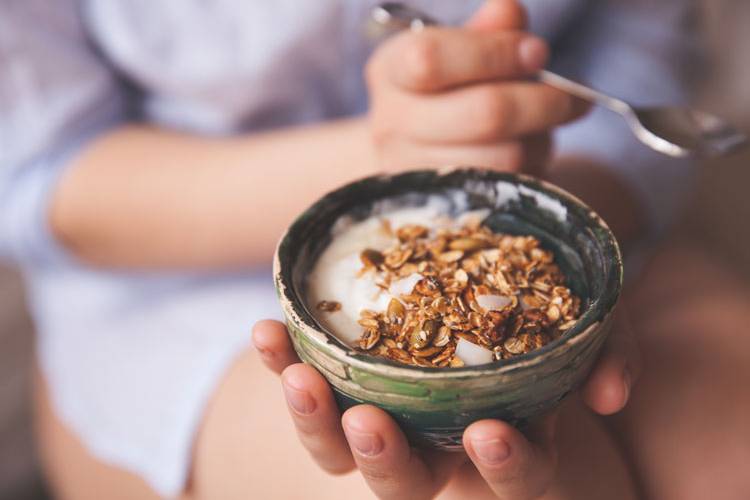7 foods that boost your immune system
A poor diet, stress or sleep deprivation are some factors that influence both your immune system and mood. To fight it, follow these tips!
health and beauty
Share

1. Vitamins and minerals
Minerals such as zinc, manganese and copper improve the functioning of the immune system. Vitamins are also necessary for cell functioning and a person’s growth and development.
You can find them in cereals, seafood, nuts, pulses and, of course, fruit and vegetables.
2. Garlic and onio
Garlic is known for its antiseptic properties, whichimprove the organism’s response to viruses and bacteria. As for onions, theyare especially indicated for respiratory infections. It can be eaten cooked torelieve congestion and raw for coughs, as it helps to expulse mucous.
3. Water
Water helps to eliminate toxins from the organism. It is recommended to drink between 6 and 8 glasses a day, although this depends on your physical activity and the food you eat. The denser your diet, the morewater you should drink.
4. Mushrooms,seaweed and cereal
These contain beta-glucans, a substance capable of regulating the immune system. This type of soluble fibre is found in all kinds of mushrooms and seaweed. Cereals such as oats and barley also contain it and several studies affirm that its consumption could be beneficial to diabetics, as it improves blood sugar regulation and cholesterol levels.

5. Royal Jelly
This completely natural food is a great source of protein, fats, vitamins (B1, B2, B6, B5, B8, E) and folic acid. It also contains sugar.
6. Yoghurts and probiotic product
The bacteria contained in yoghurt (Lactobacillus bulgaricus and Streptococus thermophylus) and fermented milk (bifidobacteriaor Lactobacilus casei), strengthen the immune system and are great allies against colds and flu.
7. Propolis
This substance is rich in bioflavonoids, trace elements, vitamins, aminoacids and essential oils.
ALSO..
• 5 a day. Remember to eat 5 portions of fruit and vegetablesa day. Their high vitamin and mineral content protect immune system cells from free radicals. Also, their phytonutrients protect against chronic diseases.
• Avoid sudden temperature change. It is important to dress depending on where you are. Sudden temperature changes between hot and cold also damage the body’s defences.
• Control Stress. Periods of continuous stress encourage defence reduction. To avoid this, you should organise yourself and learn to prioritise.
• Keep fit. 30 minutes of physical activity a day are enough to keep fit. You can also make the most of alternatives which require a physical effort, such as taking the stairs or walking to energise your body.
• Get enough sleep. Sleep deprivation has a negative effect on yourhealth. It is recommended to sleep a minimum of 7 hours a night to recoverphysically and mentally. It is important to have a light dinner and avoidexercise before going to bed.







